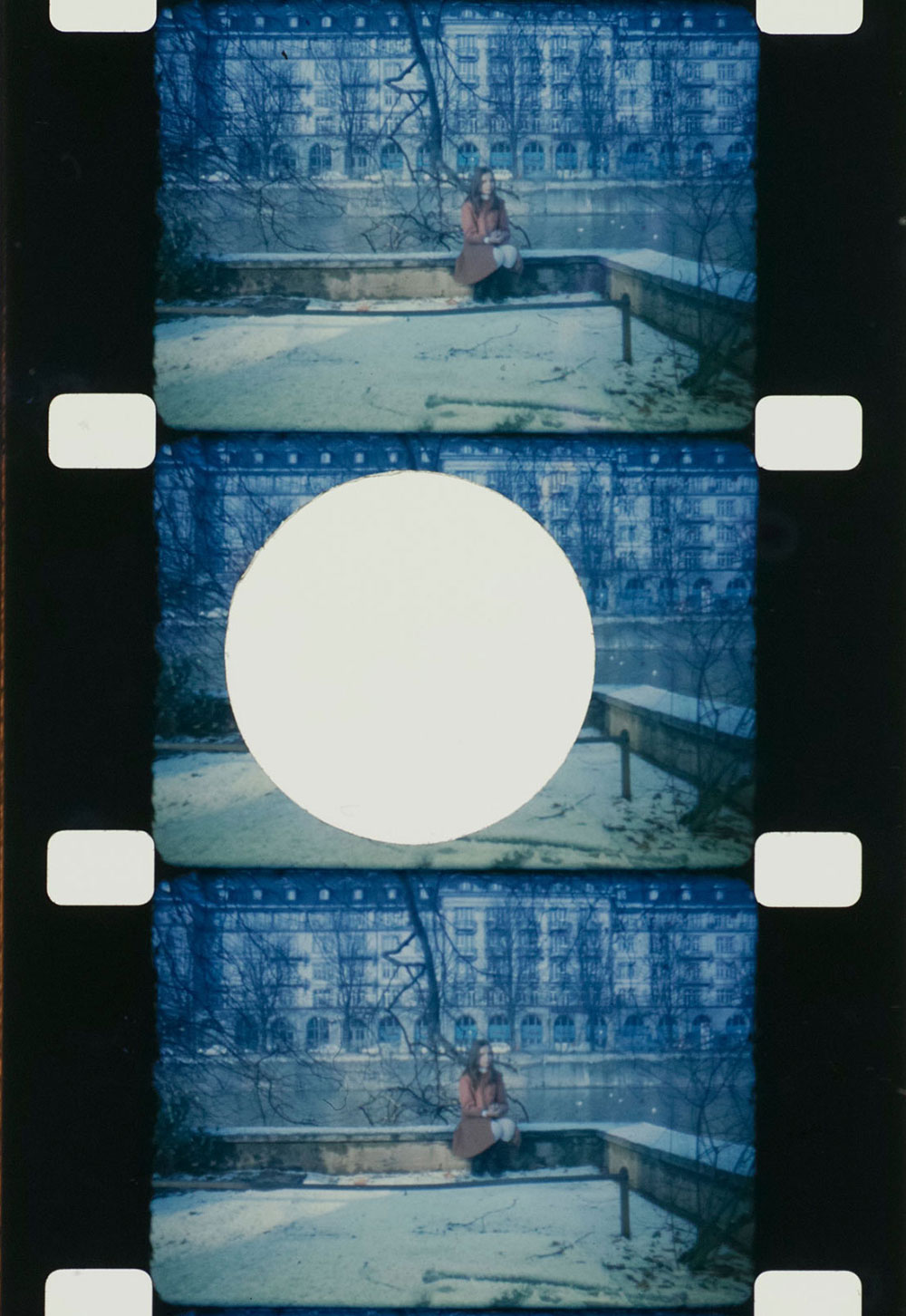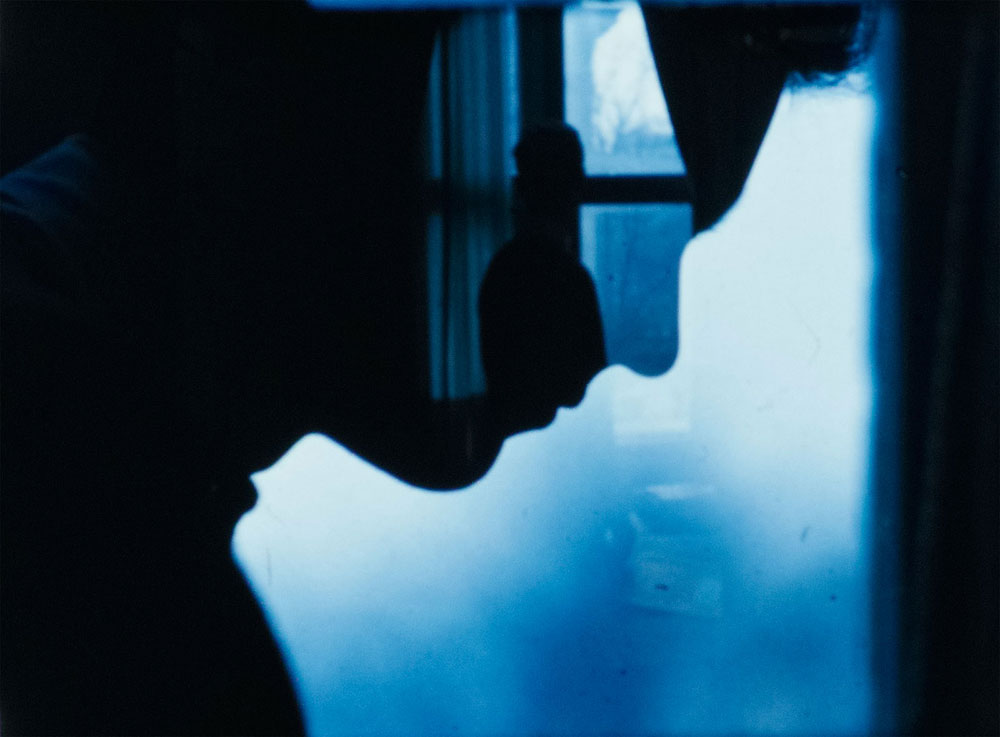The films of Robert Beavers are like stained glass tone poems, earthly film phrases foraged and then framed in light. Born outside of Boston in 1949, Beavers moved from New York to Europe in 1967 with the filmmaker Gregory Markopoulos. The pair produced peerless films that only exist on celluloid. Since the beginning, Beavers has looked out at the world as much as he has inward, figuring himself behind the camera and at the editing table.
To celebrate the publication of Rebekah Rutkoff’s Double Vision: The Cinema of Robert Beavers, the first monograph to consider Beavers’s films and writing, Anthology Film Archives is presenting a retrospective of his work. It spans from his first completed film, Winged Dialogue (1967), to his newest, Dedication: Bernice Hodges (2024). The new film premiered earlier this month at the Museum of Modern Art, where Beavers and Rutkoff gathered to discuss the theme of return and the dialogue between the tool and the hand in his work—a preoccupation in Beavers’s films that is present as early as Early Monthly Segments (1968 - 2003).
Beavers’s new projects involve filming artists’ studios and hands drawing, continuing his osmotic way of collaborating with artists. I first met Beavers this summer in Lyssarea, Greece, for the Temenos screenings of Markopoulos’s Eniaios (1948 - 1990), which Beavers has preserved with volunteer filmmaker-artists. He now lives most of the year in Berlin with the filmmaker Ute Aurand, and we wrote to each other in anticipation of his travels to New York City. Our correspondence has been edited for length and clarity.
Max Levin: You and I met this summer in Greece for the Temenos screenings of Gregory Markopoulos’s Eniaios. After you and Markopoulos moved to Europe, your filmmaking developed alongside each other until his death in 1992. Would you like to reflect on Markopoulos’s presence or proximity in your work?
Robert Beavers: The films in My Hand Outstretched are a result of my life with Markopoulos; the films made since 2000 grow out of a different way of life. In recent years I am a filmmaker-archivist-event organizer. There is my current filmmaking in Berlin and elsewhere, the archive in Switzerland and the events that I organize, especially Temenos, in Lyssarea, and there is my life with Ute Aurand.
ML: How is it to return to New York to premiere your newest film and present such a robust selection of your filmography?
RB: I lived in New York only between December 1965 and February 1967, but still feel connected to the city, and in recent years I have been thankful whenever there is an attentive and alert film public here, at MoMI or elsewhere.
ML: What was your process for assembling this retrospective? Were there any surprises or discoveries while making the programs?
RB: There are surprises every time you view a film. That is equal in some ways to the surprises and discoveries made in the filmmaking. I hope that Anthology’s public will see the changes and development. In showing the films chronologically, I show a variety of successes and failures!

ML: From 1994 to 2002, you re-edited and recomposed soundtracks of your existing work into the 18-film cycle My Hand Outstretched to the Winged Distance and Sightless Measure. How do the parts relate to the whole? I wonder if there are analogous processes between making My Hand Outstretched and presenting a retrospective of your films.
RB: All of the cycle will be shown. There is Early Monthly Segments and the first five films which represent the first stage, then the four films made in Italy, and the culminating nine films from Sotiros to The Ground. When I began re-editing my early films, I wanted to simplify and condense the films and as a result the soundtracks needed re-editing and new sound. There were only one or two films that I did not touch. Then the key turning point after the cycle is with Pitcher of Colored Light.
ML: I’ve noticed many portals in your films: the opening into the ice box, the window onto the Grecian blue sky at the beginning of the Monthly Segments, and the many masks that you use to create geometric volumes and voids. How do you think of these openings?
RB: It is a means of abstraction, of metaphor, of the simultaneous, and of articulating positive and negative space. I hope that it develops differently in each film, and I am happy to have rediscovered a variation in my recent filming.
ML: Your newest film, Dedication: Bernice Hodges, includes some of the earliest film images that you shot in 1966. What was the process like for composing these materials into a memorial portrait?
RB: It is the final film in a sequence of films that share the same emotional thread, a source in memory and mortality. The two elements in this film are my current studio in Berlin and two images that I filmed of Bernice Hodges in 1966 and re-filmed on the Steenbeck table, plus objects that I associate to her. I am thanking the person by making a film, many years after her death.
ML: Are you shooting or editing anything now? Are there any places where you would like to film and have not yet?
RB: I have been filming in the studio of FP Boué in Ridgewood and at a few sites in Berlin, where [Karl Friedrich] Schinkel’s architecture is still present, and I have done a test in Aaron Scott’s studio. Of course there are places that I might dream about filming; I think of Russia or the Arab world, but these will probably remain imaginings.
ML: Rebekah Rutkoff edited a collection of writings on your films for the Austrian Film Museum in 2017, and now has published the monograph Double Vision. What has your relationship to criticism and film scholarship been throughout your career? How has it been to work with Rebekah?
RB: Any communication between two human beings is complex… Whether it is actor and filmmaker, filmmaker and spectator or critic, and much is gained through patience and calm, knowing that there are always other sides, other viewpoints. Double Vision is the culmination of a long conversation; it is an imaginative work in the best sense… Speculative, attentive, and intelligent about setting our voices in a context.
“The Films of Robert Beavers” runs September 26-29 at Anthology Film Archives. Beavers will be in attendance for a series of Q&As.



